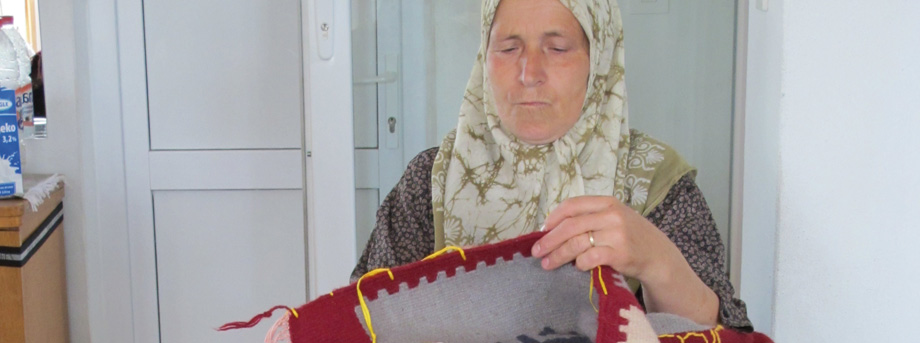Sowing seeds for the future
February 3rd, 2011
The resurgence of knitting and sewing clubs in the UK has created a new twist on an old social scene, but in former war zones around the world, they’re helping to save lives and restore peace.
Research by an expert at The University of Nottingham has focused on how international aid agencies are increasing sponsorships of handicraft schemes run by women in countries such as Bosnia
and Liberia.
Dr Vanessa Pupavac, from the School of Politics and International Relations, has been studying the role of women as peace-keepers in these former war zones; Bosnia particularly.
“Whether an Afghan Women’s Sewing Initiative, an African Amani Sewing and Reconciliation Project, or Burmese Weaving for Women project, it is striking how many NGOs support women at the loom or needle,” says Dr Pupavac.
“Here I’m looking at the international sponsorship of handicrafts for Bosnian women against the rise in nostalgia for non-industrial living in post-industrial consumer societies like Britain’s.”
The importance of these schemes is not taken for granted. A sewing project in Liberia has helped more than 20,000 female fighters reintegrate into society. One fifth of all ex-fighters have been demobilised and are being trained in schemes like this.
In Bosnia the schemes could also help boost the economy and create jobs in a country with an unemployment rate of around 40 per cent.
“To overcome this,” says Dr Pupavac, “there are plans by NGOs in Bosnia to market the work of the Srebrenica weavers to the world. Just as the Fairtrade movement works for a fair price for small producers, the NGOs want a fair price for the women’s work.
“The point is an important one, especially when you consider that microenterprises in Bosnia employ 2.1 people on average. If they’re successful in their marketing they will help stave off the effects of cheaper products on the world market.”
The idea of woman as peace-makers is not a new one — as other academics like Kathleen Herbert have stressed — pointing to the fact that the term ‘peace-weaver’ traditionally refers to women who were married to bring enemy tribes together.
Politically this approach is seen as crucial and is based on more than just sentiment: “In the last twenty years, official conflict management approaches, informed by social psychological models, have taken up the idea of women’s peace-keeping role,” adds Dr Pupavac.
“International conflict management NGOs such as International Alert have gender and peace-building programmes and have lobbied governments and organisations to bring women into the peace processes.”
Tags: Dr Vanessa Pupavac, Fairtrade, International Alert, Kathleen Herbert, NGOs, School of Politics and International Relations
Leave a Reply
Other News

Need news? See you on SharePoint
After 14 years of service, Campus News is being retired as the university’s staff news platform. […]

Roads and car parks closed for refurbishing work
As part of ongoing road improvements at the university, works will be taking place to resurface […]


